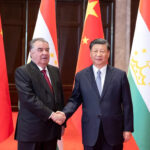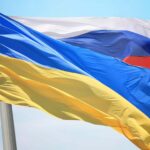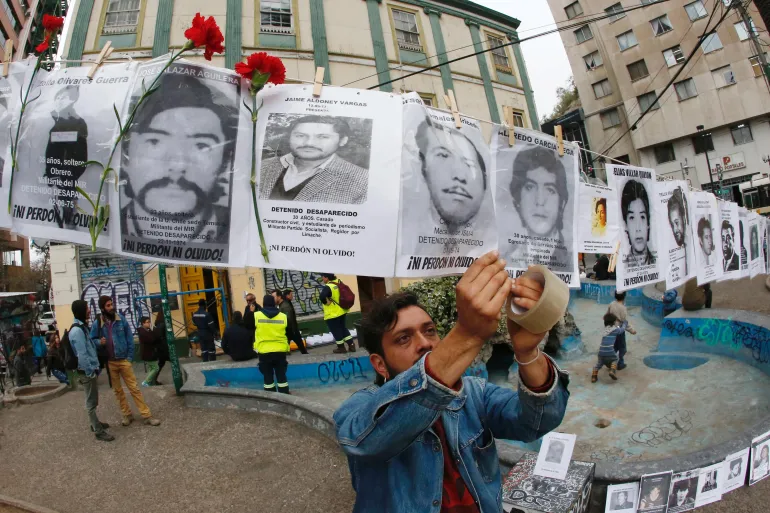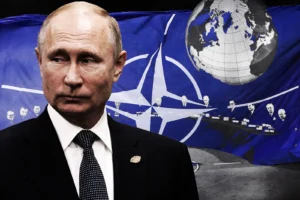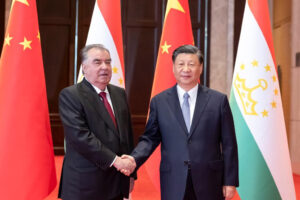On 50-year anniversary of Pinochet-led coup, Chileans are confronting national trauma of thousands forcibly disappeared.
Jeannette Avila takes out a white handkerchief atop Cerro Chena, a hill overlooking Chile’s capital, Santiago. Waving it up and down, she begins to dance to the music of Chile’s national dance.
“La cueca” is normally performed with a partner, but Avila is dancing alone.
The photographs of Chilean political prisoners who were forcibly disappeared decades ago and whose remains have never been found are laid out at her feet. Among them is Avila’s grandfather, whose face and name are emblazoned on her T-shirt.
“My grandfather, Roberto Avila, was a railroad worker and a protestant pastor, and we know that he was executed here with others,” Avila told Al Jazeera during a memorial two weeks ago to the more than 100 people who are believed to have been killed in this spot in the 1970s and 1980s.
“But their remains are still missing.”
Her grandfather was detained by Chile’s secret police nearly 47 years ago, shortly after Chilean dictator Augusto Pinochet led a September 11, 1973 coup that deposed the country’s left-wing president, Salvador Allende, and his government.
One of the Chilean army’s most notorious interrogation and torture centres was on Cerro Chena – and the area has become a symbol for the mothers, widows, children, and grandchildren of the more than 1,160 people who were disappeared during Pinochet’s 17-year military dictatorship and never seen again.
Avila’s solitary dance is called “la cueca sola” (cueca alone) in honour of the dance partners that she, and so many other Chilean families, are still missing.
“Their souls, and ours, continue searching for peace. My grandmother died without even a bone of her husband’s to bury to give her some solace,” she says, tears streaming down her face.
National trauma
In the lead-up to the 50-year anniversary on Monday of the coup that initiated Chile’s military dictatorship, four generations of Chileans are being forced to face a still-unresolved national trauma.
Tens of thousands of Chileans were tortured, executed or forcibly disappeared under Pinochet’s rule, according to two government truth commissions set up after Chile returned to democracy in 1990.
In the vast majority of the cases, the perpetrators of human rights abuses have not been tried and sentenced. Worse yet, for the families of the missing, the military has still refused to reveal details about what happened to them or their remains.
For years, defending the military regime’s human rights legacy – at least in public – was thought of as politically unacceptable. But as in other countries in the region, so-called “dirty war denial” is growing in Chile, sowing anger and division on all sides.
Late last month, the government of left-wing President Gabriel Boric unveiled a national search plan that for the first time makes the Chilean state responsible for uncovering what happened to the missing, who was responsible for their disappearances, and where their remains are buried.
But conservative opposition leaders have refused to embrace the proposal, even boycotting the ceremony at the presidential palace. They argued that the government was using the announcement for political gain.
Yet even as some Chileans prefer to not talk about it, and others deny it, the unresolved issue of the disappeared is a wound that continues to fester in the South American nation.
And against this backdrop, some survivors of the Chilean military regime are trying to lay their ghosts to rest by facing truths that were long kept hidden.
‘Like a phantom’
Cristian Martinez is among those working to uncover and grapple with what happened.
Cristian was 19 months old when his father, Augustin Alamiro Martinez, disappeared. Both of his parents belonged to the Revolutionary Left Movement, or MIR, a clandestine left-wing organisation whose members were hunted down by Pinochet’s secret police.
On January 1, 1975, Agustin Alamiro Martinez took Cristian with him to meet a “comrade” on a designated street corner in Santiago. When they arrived, Martinez was grabbed by intelligence agents and thrown into a van with his son.
After convincing the agents to drop the toddler off at a relative’s house nearby, Martinez was taken to Villa Grimaldi, a secret interrogation and torture centre in the capital.
It was there that he discovered that his “comrade” had been detained a day earlier with his seven-month-pregnant wife and that he had betrayed Martinez under torture. The friend survived, but Martinez was never seen again.
“My mother looked for him everywhere, but it was no use,” Cristian told Al Jazeera in a recent interview.
As Cristian grew up, his father was never discussed. There were no photographs of him in the family’s home. “Even after my mother was forced to go into exile with me and my brother to France in 1988, the veil of secrecy remained in place,” he recalls.
It was only when Martinez returned to Chile alone at the age of 21 that he discovered that the father of childhood friends he had while in France – the children of another exiled Chilean couple – was the “comrade” who had betrayed his father.
“They had been my neighbours. I was in shock. I asked myself a thousand questions. ‘Had my friends known? Why didn’t my mother ever say anything?’”
Two years ago, Cristian finally met the man responsible for his father’s arrest and discovered that he, too, has been suffering in silence since the day he cracked under torture. “Guilt makes you try to forget. You can’t speak, you can’t mention the subject,” Cristian says.
His friends’ family would never discuss the dictatorship or what had happened to them. “The subject was off limits,” he says. “My father was 26 when he disappeared. Today I’m 48, and I have two daughters. I have the emotional tools to be able to sit in front of the man who betrayed my father and understand.”
Cristian’s search for answers – and the shame, pain and guilt both families have felt for decades – is part of a documentary called, The Army of Bears, that he has started working on. The film is also an attempt to reconnect with the father he never really knew, he says.
“My father was like a phantom to me. What did he look like? Why can’t I remember him? A photo album that an aunt had stashed away and decided to give me has helped find some of the answers,” Cristian told Al Jazeera.
“Now I also understand a little better that for my mother and other relatives, the pain of my father’s disappearance was so deep that they never found the emotional mechanisms to face it. They simply couldn’t speak.”
Source : Al Jazeera



